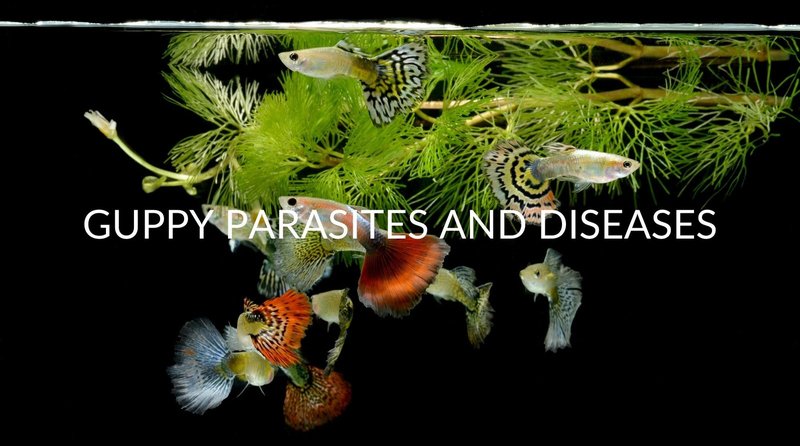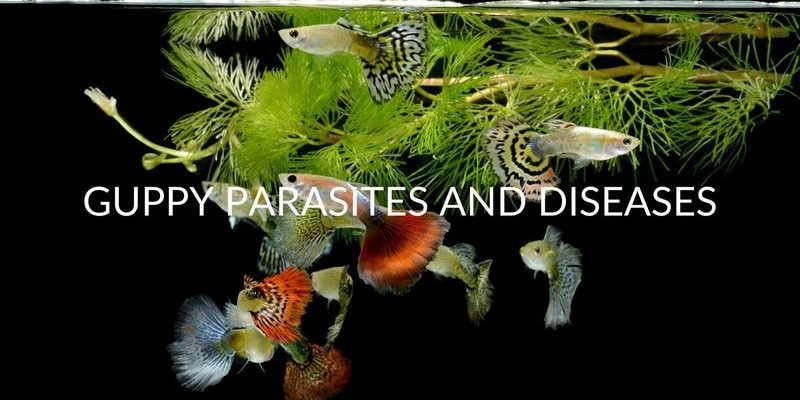
Guppies, known scientifically as *Poecilia reticulata*, are relatively hardy fish, but they can fall victim to a few pesky illnesses. Whether you’re an experienced aquarist or a newcomer, being aware of these potential problems can save you a lot of stress—and help your fish live longer, fuller lives. Let me walk you through some of the most common health issues guppies might encounter, and how you can help.
1. Ich: The White Spot Disease
Ich is one of the most common health problems affecting guppies and many other freshwater fish. It’s caused by a parasite called *Ichthyophthirius multifiliis*, which is a mouthful, I know! This parasite is like a tiny hitchhiker that attaches itself to your fish and causes white spots to appear all over their bodies, similar to how you’d notice freckles on a sunny day.
Identifying Ich: If you notice your guppy rubbing against surfaces or showing signs of stress, Ich is likely the culprit. Those little white dots are a telltale sign. Plus, your guppy may stop eating, which is never a good sign.
How to Treat Ich: Here’s the thing: treating Ich is definitely possible, but you have to act fast. Raise the water temperature slightly to speed up the life cycle of the parasite, and add a medication specifically designed for Ich. Make sure to follow the dosage instructions carefully. Remember, patience is key—treatment usually takes about a week.
2. Fin Rot: When Things Get Tattered
Fin rot is another common ailment, often a result of poor water quality or injury. Imagine your guppy’s fins as delicate pieces of art; when conditions aren’t optimal, they can start to fray and develop a raggedy appearance.
Recognizing Fin Rot: If you see black edges on the fins or the fins appear to be disintegrating, that’s a sign of fin rot. Affected fish might be lethargic or even hide more than usual—definitely not a good look for your lively guppy.
Treatment Options: To treat fin rot, the first step is to improve your tank’s water conditions. Regularly change the water and ensure proper filtration. Additionally, adding anti-bacterial medications can speed up the healing process. In severe cases, you might need to isolate the affected guppy to prevent spreading.
3. Swim Bladder Disease: Floating or Sinking?
Swim bladder disease is a bit of a misnomer; it’s not a disease in the traditional sense but rather a symptom of an underlying issue. Think of a guppy’s swim bladder as their buoyancy control system. If something goes wrong, you might find your guppy struggling to swim or floating upside down.
Spotting Swim Bladder Issues: If your guppy is having difficulty maintaining its position in the water, exhibiting unusual swimming patterns, or lying on the tank bottom, it might be time to intervene. This can happen due to overfeeding, constipation, or a bacterial infection.
How to Fix It: Start by fasting your guppy for a day or two. This allows their digestive system to reset. After that, introduce a high-fiber diet, like peas (blanched and skinned). If the issue persists, consider consulting with an aquatic vet for specialized treatment.
4. Fungal Infections: The Cottony Problem
Fungal infections can spread quickly in a tank if conditions aren’t right, often appearing as white or fuzzy spots. They’re not just unsightly; they can seriously affect your guppy’s health.
Identifying Fungal Infections: Common signs include fuzzy growth on your guppy’s skin or fins, as well as reddening of the affected areas. If you notice any of these symptoms, it’s essential to act quickly.
Treating Fungal Infections: First, isolate the affected fish to prevent the fungus from spreading. A salt bath can help, as can antifungal medications specifically designed for treating aquatic fungal issues. Ensuring that your tank is clean and that the water is well-aerated can also discourage future outbreaks.
5. Neon Tetra Disease: A Sneaky Threat
Despite its name, Neon Tetra Disease doesn’t only affect neon tetras. Guppies can fall victim too, and it’s caused by a parasite. This disease can be particularly insidious because it often goes unnoticed until symptoms become severe.
Recognizing Symptoms: Look for changes in coloration and behavior. Infected guppies may develop a faded appearance and swim erratically or isolate themselves from the school. If you notice these changes, it’s time to take action.
Treatment: Unfortunately, there’s no straightforward treatment for Neon Tetra Disease. The best course of action is to remove any infected fish and keep the remaining ones in a stress-free environment. Maintaining tank cleanliness and good water conditions can prevent outbreaks.
6. Preventing Health Problems
Now that we’ve covered some of the common health issues guppies face, prevention is always better than cure. Think of it like maintaining a car; regular checks can save you a ton of trouble down the road.
Tank Hygiene: Make regular water changes—about 20% each week—and invest in a good filtration system. Clean your tank decorations and substrate regularly to keep harmful bacteria at bay.
Feeding Right: Make sure to provide a balanced diet. Overfeeding can lead to illness, while underfeeding can weaken your fish. A well-fed guppy is a happy guppy!
Social Environment: Guppies thrive in groups, so keep them in schools of at least five or six. This helps reduce stress and encourages natural behavior.
7. When to Call for Help
If you’ve tried treating your guppy’s health issues at home and haven’t seen improvement, it might be time to consult a professional. Seriously—don’t hesitate to seek advice from an aquatic veterinarian or a knowledgeable pet store staff member. They can provide tailored advice and treatments that might not be available over the counter.
In conclusion, keeping guppies healthy isn’t just about understanding their potential health issues. It’s about creating an environment where they can thrive and flourish. Regular tank maintenance, proper feeding, and quick responses to any signs of illness can make all the difference. Just remember, keeping fish is as much about enjoying their beauty as it is about providing a loving and caring home. With a little knowledge and attention, your guppies can live long, healthy lives, bringing joy to your aquarium for years to come.

